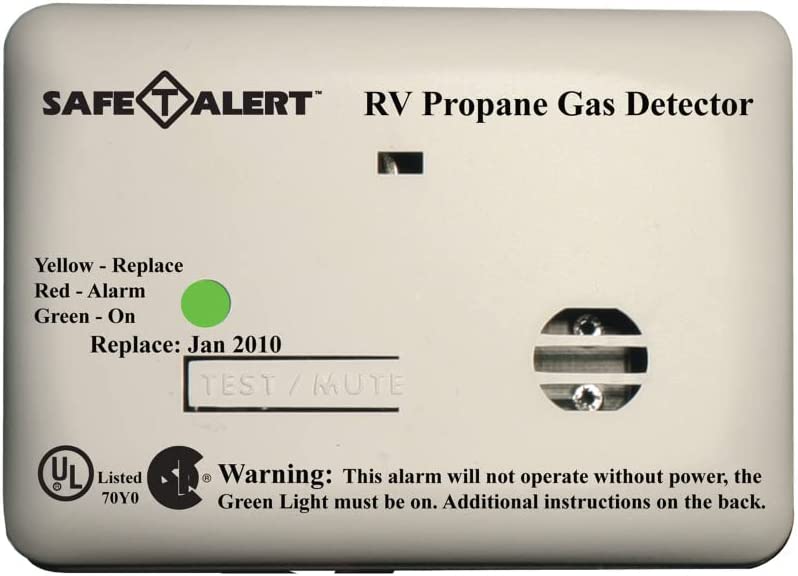If you own an RV, you know how important it is to have a reliable propane gas detector. Propane gas is used for cooking, heating and running appliances in your RV, but it can also be dangerous if it leaks. A propane gas leak can cause fire, explosion or carbon monoxide poisoning, which can be fatal.
That’s why you need a propane gas detector that can alert you of any propane leaks in your RV. There are many types and brands of propane gas detectors on the market, but not all of them are suitable for RVs.
Some factors to consider when choosing a propane gas detector for your RV are:
Power source:
Some propane gas detectors are hard-wired to your RV’s 12V system, while others are battery-operated. Hard-wired detectors have the advantage of not needing battery replacement, but they can drain your RV’s battery if left connected between trips. Battery-operated detectors are more portable and convenient, but you need to check and replace the batteries regularly.
– Installation: Some propane gas detectors are flush-mounted, meaning they fit into a cutout in your RV’s wall or cabinet. Others are surface-mounted, meaning they attach to the wall or cabinet with screws or adhesive. Flush-mounted detectors have a sleeker look, but they require more work and skill to install. Surface-mounted detectors are easier to install, but they may stick out and take up more space.
Sensor type:
Some propane gas detectors use electrochemical sensors, while others use catalytic sensors. Electrochemical sensors are more sensitive and accurate, but they can be affected by humidity and temperature changes. Catalytic sensors are more durable and stable, but they can be less responsive and prone to false alarms.
Alarm type:
Some propane gas detectors have audible alarms, while others have visual alarms or both. Audible alarms are louder and more noticeable, but they can be annoying or disturbing. Visual alarms are more discreet and less intrusive, but they may not be visible in bright light or dark conditions.
Features:
Some propane gas detectors have additional features that can enhance their performance and convenience. For example, some detectors have mute buttons that can silence the alarm temporarily while you ventilate your RV. Some detectors have test buttons that can check the functionality of the device. Some detectors have dual sensors that can detect both propane and carbon monoxide.
To help you find the best propane gas detector for your RV, we have reviewed some of the most popular models on the market based on their power source, installation, sensor type, alarm type and features. Here are our top picks:
MTI Industries 20-441-WT Propane Detector:
This is a hard-wired, flush-mounted, catalytic sensor detector with an audible alarm. It has an alarm mute button, a rapid recovery sensor and a 12V installation. It meets the authority standards of NFPA and RVIA and is listed to UL 1484 RV.
MTI Industries 30-442-P-WT Propane Gas Alarm:
This is a hard-wired, flush-mounted, electrochemical sensor detector with an audible alarm. It has an alarm mute button, a low voltage indicator and a 12V installation. It meets the authority standards of NFPA and RVIA and is listed to UL 1484 RV.
Kidde Carbon Monoxide and Explosive Gas Detector Alarm:
This is a battery-operated, plug-in, electrochemical sensor detector with an audible alarm and a digital display. It has a test button, a peak level memory and a 9V battery backup installation. It detects both propane and carbon monoxide and meets the authority standards of UL 2034 and UL 1484.
X-Sense Smoke and Carbon Monoxide Detector Alarm SC01:
This is a battery-operated, surface-mounted, photoelectric sensor detector with an audible alarm and a digital display. It has a test button, a hush button and a 10-year lithium battery installation. It detects both smoke and carbon monoxide and meets the authority standards of UL 217 and UL 2034.
These are some of the best propane gas detectors for your RV that you can choose from based on your preferences and needs. Remember to install them properly according to the manufacturer’s instructions and test them regularly to ensure their functionality. Stay safe and enjoy your RV adventures!




